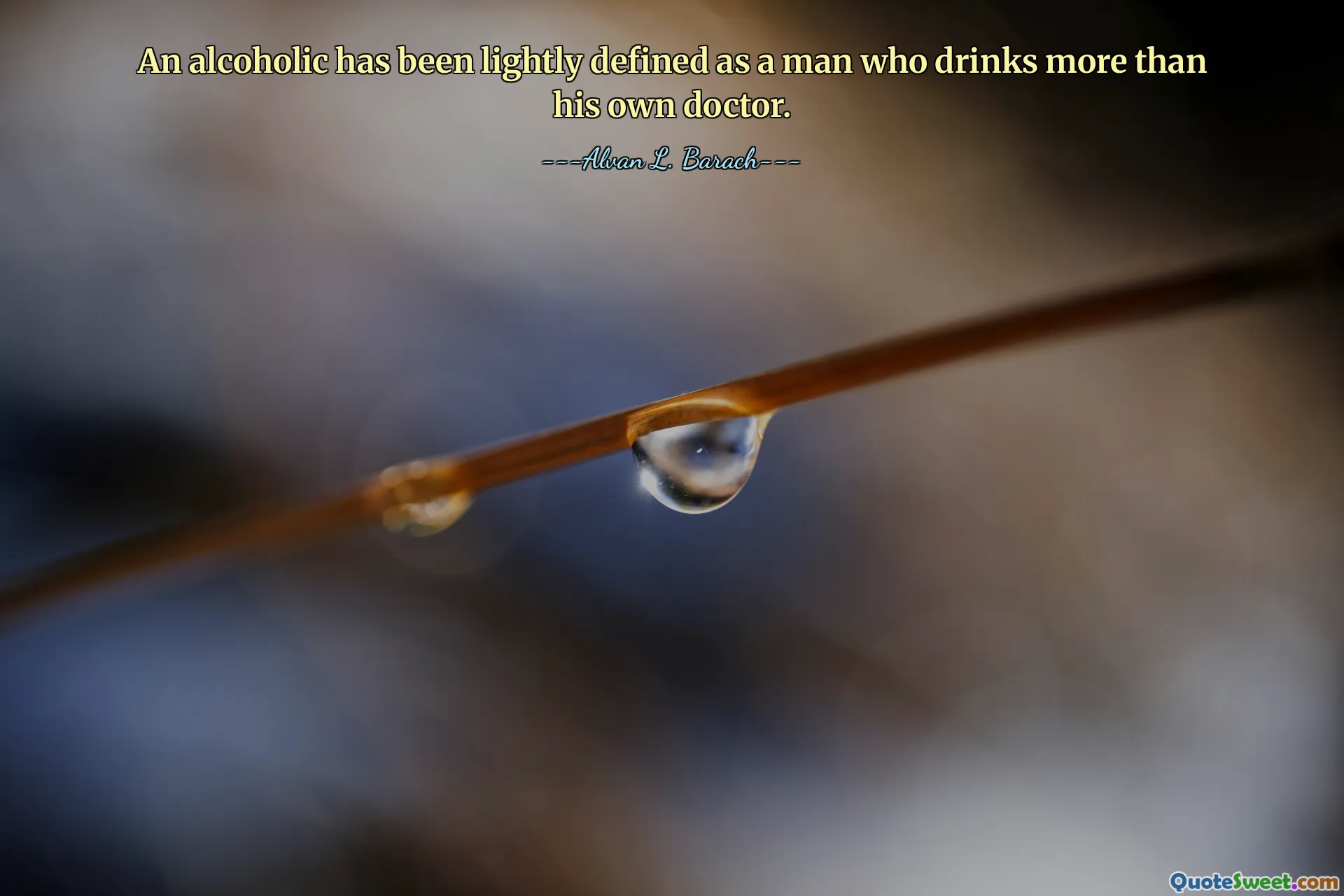
An alcoholic has been lightly defined as a man who drinks more than his own doctor.
This quote cleverly underscores the insidious nature of alcoholism, highlighting the subtlety with which it can infiltrate someone's life. It draws a parallel between a person's physician—whose role is to promote health—and the individual who disregards such advice to indulge excessively. The phrase suggests that alcoholism isn't always flagged by obvious signs but can be present even when a person considers themselves in control of their drinking habits. It prompts reflection on the human tendency to underestimate personal vulnerabilities and the importance of honest self-assessment. The comparison of a man drinking more than his doctor advises acts as a poignant metaphor: even trusted authority figures—like doctors who understand health risks—can be ignored, leading to self-destruction. Beyond just a humorous observation, the quote serves as a cautionary reminder of how easily addiction can be dismissed or overlooked; it emphasizes the importance of awareness, moderation, and humility in health behaviors. Moreover, it subtly criticizes societal attitudes that trivialize excessive drinking, portraying it instead as a serious issue that can be cloaked in humor or understatement. Recognizing one's limitations and respecting medical advice are crucial. In essence, this quote invites introspection into our relationship with substances, urging us to consider the line between control and excess and to approach health advisories with the respect they deserve. It encapsulates a truth that remains relevant across ages: that sometimes, our biggest risks come from within, disguised as casual or light-hearted habits.











